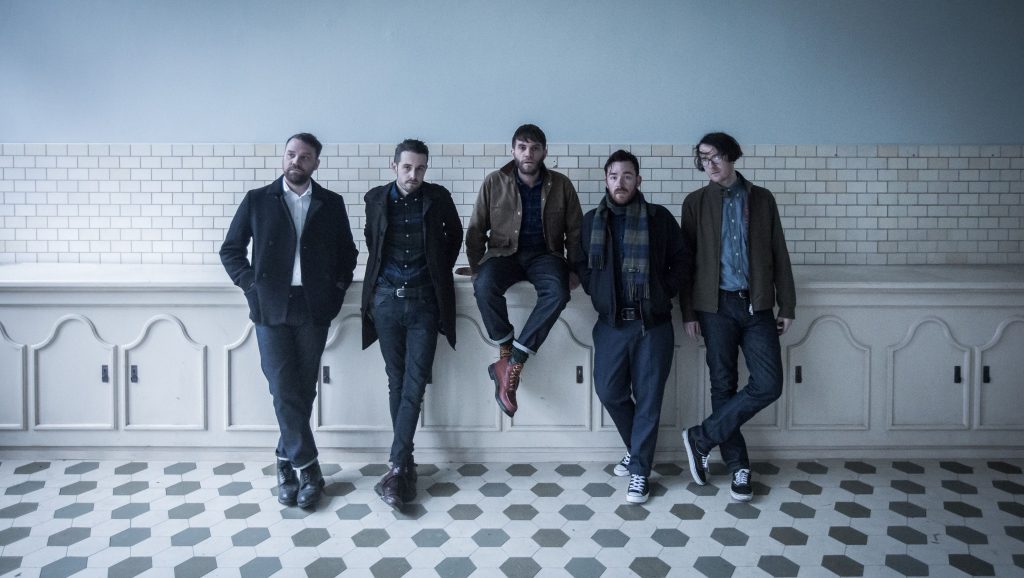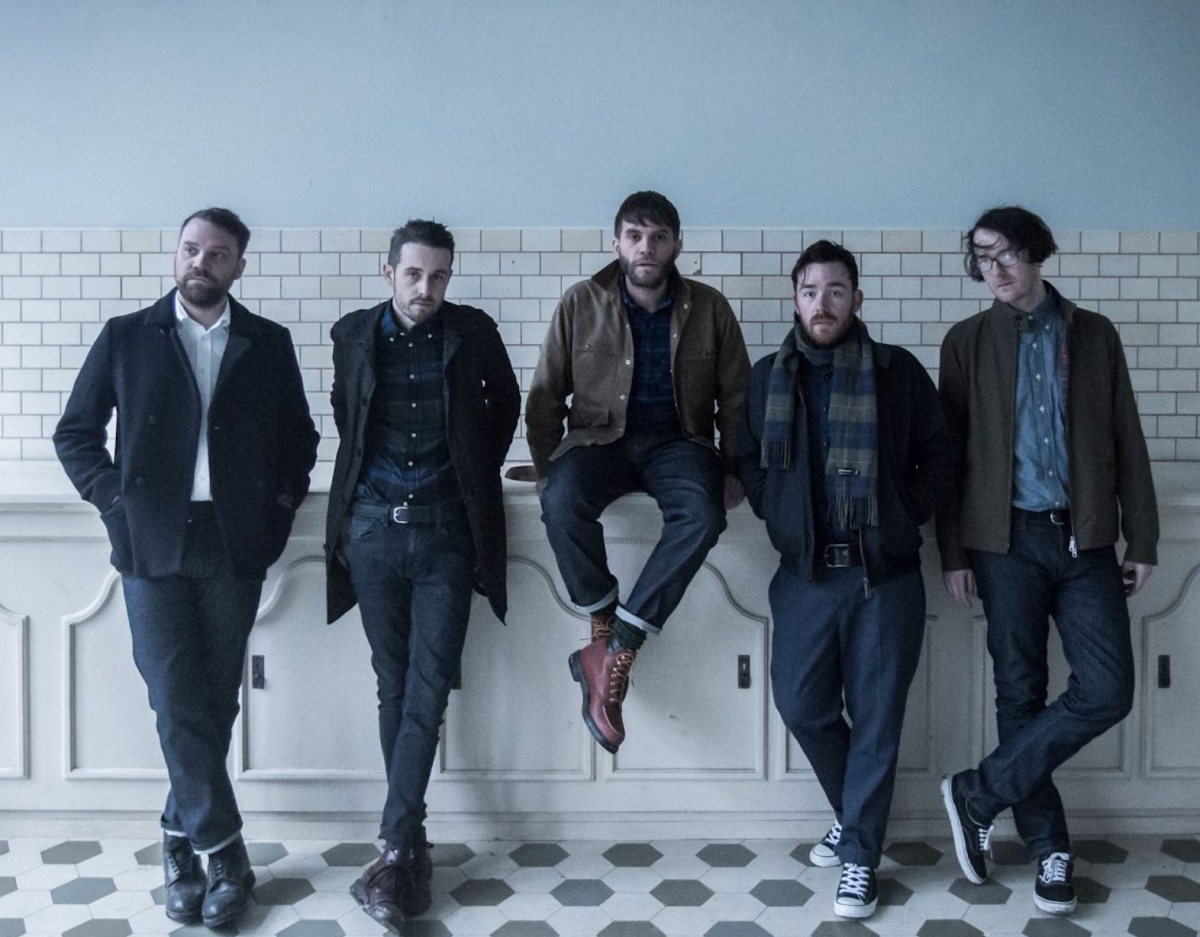
Frightened Rabbit frontman Scott Hutchison confronts his dark side on Painting Of A Panic Attack
Frightened Rabbit bandleader Scott Hutchison knew that he was sinking into an abyss—mentally, emotionally, even spiritually—after the 2013 release of Pedestrian Verse, the Scottish group’s Snow Patrol-ish breakthrough album, its fourth. But he couldn’t gauge the true depth of his situation until he began seeing his followers in a dreary new light.
“When you start to play a show and you’re looking at the audience, and you resent every single one of them for being there?” he says, with a new clarity. “That’s a really bad place to be in. And when you’re in that bubble, it’s also a very hard place to get help.”
But help is what the singer finally got, from some rather unusual sources. All of which led to the fifth Frightened Rabbit epistle—the aptly dubbed Painting Of A Panic Attack, produced by the National’s Aaron Dessner—and lyrically grim, but sonically sweeping laments like “Death Dream,” “I Wish I Was Sober,” “An Otherwise Disappointing Life” and eventually a life-affirming “Still Want To Be Here.” One haunted number, “Woke Up Hurting,” has such a huge singalong/handclap chorus, it’s the album’s most ebullient feel-good anthem. Even though Hutchison wasn’t feeling too well when he wrote it.
“I’ve always enjoyed the friction that you can get by putting an image that’s dark onto music that’s really uplifting,” he says. “I love that, and it’s something that I’ve been working on for a really long time.”
How did Hutchison wind up in such choppy existential waters? Through a combination of factors, probably starting in childhood, he says, when he was so skittishly shy that his own mother nicknamed him Frightened Rabbit. Gradually, he gained the confidence to perform solo acoustic shows under the moniker, and then added his brother Grant Hutchison on drums, leading to the well-rounded five-piece the outfit is today—a lineup that now includes guitarist Simon Liddell, who recently replaced the departing Gordon Skene.
But the sudden crowd-pleasing popularity of Pedestrian Verse did not suit the Selkirk native well. He began experiencing panic attacks, small ones initially. “And then there was one major episode on a fucking airplane, of all places, which was terrifying,” he says. “So you eventually feel like you’re going to pass out for a lot of the day, and then at night you try and go onstage. I was medicated for that, but I was medicating with—not just with what I was prescribed—but booze, so it was this vicious cycle. And at the end of that? I really wanted the pain to stop.”
The 34-year-old Hutchison and his longtime girlfriend were residing in Los Angeles at the time, and the combustibility of their relationship didn’t help matters. One thump-chiming track, “Break,” details his storming out of their apartment with a bag of belongings, post-argument, to spend an angry night under a city overpass. “It was very dramatic,” he admits. Hutchison has returned to Scotland temporarily, just to give the intense romance some breathing room. “So I’m learning new habits—we’re learning how to be, uh, less up each other’s arses,” he says. “I’m a calmer person now, and I’m just living a little more in the moment. I’m no longer scared, but I’m still looking at it with a sense of trepidation, for sure.”
To hit that plateau, he retreated to the Isle of Mull two years ago—with Liddell and band keyboardist/guitarist Andy Monaghan in tow—to quietly write and record what was essentially a solo album under the moniker of Owl John. He had fallen out of love—not just with fans but songwriting itself, he says—and the experiment put him back in touch with his muse. When he set to work on Painting, he had a concept in mind.
“I saw it as two young people, a couple, who are desperate to leave the town they grew up in, which also leads back to how I was feeling trapped in L.A., and how the two of us needed to escape, so the music itself is quite claustrophobic,” he says. “So this album was originally supposed to be more of an outward social commentary. But then I was forced to look into what I’d been experiencing—my own abyss—and this is what came gushing out. I had just been holding it in for too long.”
—Tom Lanham







